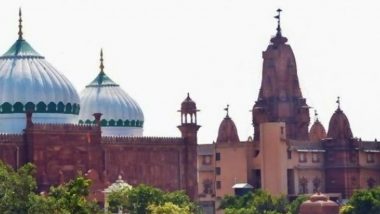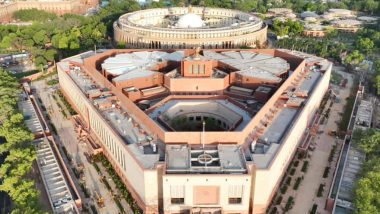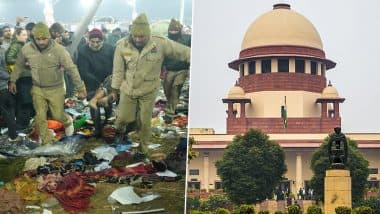Prayagraj, April 22: The Hindu side in the matter of Krishna Janmbhoomi and Shahi Eidgah suit in Mathura on Monday countered the Muslim side's contention in the Allahabad High Court that the dispute is related to a Waqf property. The property in question was a temple and "after taking forcible possession of the same they started to offer Namaz but by this, the character of land cannot be changed", the counsel for the Hindu side argued, adding it was not a Waqf property and the Wakf Act is not applicable to it.
Since it "is not Waqf property, this court has jurisdiction to hear the matter", the counsel said. The Muslim side had questioned the maintainability of the suit, claiming the disputed Shahi Idgah Masjid is a Waqf property and thus the jurisdiction to hear the matter is only with the Wakf Tribunal and the civil court has no jurisdiction to hear the case. Justice Mayank Kumar Jain, who was hearing the petitions on the maintainability of the suit, fixed April 30 as the next date of hearing. Krishna Janmabhoomi-Shahi Eidgah Dispute: Eidgah Committee To Move Supreme Court Against Allahabad High Court Order Allowing Survey of Mosque Complex
Replying to the arguments from the Muslim side, the Hindu side submitted that the suit is maintainable and the plea regarding non-maintainability can only be decided after leading evidence. "The plea regarding the application of Places of Worship Act as well as Waqf Act can only be determined by evidence by the parties in suit and cannot be decided while hearing an application under Order 7 Rule 11 of Civil Procedure Code," the counsel submitted. Krishna Janmabhoomi-Shahi Eidgah Dispute: Supreme Court Dismisses Plea Seeking Recognition of Mathura’s Idgah Masjid Site As Krishna Janmabhoomi
Earlier, Vishnu Jain, appearing on the Hindu side, had said that merely by saying that now a mosque is there on the property, the Wakf Act will not apply. The religious character of the property cannot be changed merely demolishing it. He further submitted that it has to be seen and decided whether the alleged Waqf deed is valid or not. "If property is not a valid property of Waqf, it would not be a valid Waqf. All these things are to be seen during the trial and thus the present suit is maintainable," he had argued.







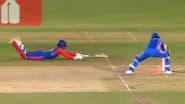
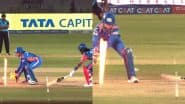


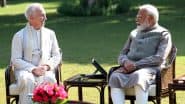

 Quickly
Quickly










